45 understanding carbs on food labels
This Is How to Read a Nutrition Facts Label on the Keto Diet Depending on the daily carb intake you've determined for yourself to stay in ketosis, this is a quick way to determine whether you have room in your daily eating plan for a particular food. (Remember, a ketogenic diet is typically a ratio of about 70-75% fat, 15-25%+ protein, and 5% or less of calories from carbs.) Food Labels | CDC - Centers for Disease Control and Prevention If you eat the whole thing, you are eating 8 times the amount of calories, carbs, fat, etc., shown on the label. Total Carbohydrate shows you types of carbs in the food, including sugar and fiber. Choose foods with more fiber, vitamins, and minerals. Choose foods with lower calories, saturated fat, sodium, and added sugars. Avoid trans fat.
Understanding Food Nutrition Labels | American Heart Association 1 - Start with the serving information at the top. This will tell you the size of a single serving and the total number of servings per container (package). 2 - Next, check total calories per serving and container. Pay attention to the calories per serving and how many calories you're really consuming if you eat the whole package.

Understanding carbs on food labels
Understanding Food Labels - Nutrition: Science and Everyday Application ... The FDA uses the following definitions for interpreting the %DV on food labels:4 5%DV or less means the food is low in a nutrient. 10% to 19%DV means the food is a "good source" of a nutrient. 20%DV or greater means the food is high in a nutrient. How To Read Food and Beverage Labels - National Institute on Aging These foods have a legal limit to how many calories, grams of fat, or carbohydrates (carbs) they can contain per serving. However, if a serving size is very small, you may end up eating multiple servings in one sitting, ultimately consuming the same amount of fat, calories, and carbs as the regular version of the food. Multigrain. PDF Read the Food Label for Carbohydrates - National Institutes of Health Read the Food Label for Carbohydrates Food labels help you choose foods that are lower in calories and in carbohydrates and sweeteners. Here is a food label for a 12-ounce regular soda. The label provides lots of useful information. 1. Serving Size and Number of Servings The serving size is 12 ounces. There's 1 serving in this container. 2.
Understanding carbs on food labels. Food labels - NHS Nutrition labels are often displayed as a panel or grid on the back or side of packaging. This type of label includes information on energy (kJ/kcal), fat, saturates (saturated fat), carbohydrate, sugars, protein and salt. It may also provide additional information on certain nutrients, such as fibre. Low Carb Guide to Understanding Nutrition Labels - Virta Health According to labeling laws in the U.S., if a food contains less than 0.5g of trans fat per serving, the label can say 0g, so be sure to read the list of ingredients. You can spot trans fats by the words "hydrogenated" or "partially hydrogenated" with oils. Sugar-free or Low-carb: Don't be fooled by clever packaging and slick marketing. Food Labels: Carbohydrates | Home & Garden Information Center Listed below total carbohydrate on the food label are the values for dietary fiber and sugars. It is voluntary to list the number of grams of sugar alcohols (polyols) per serving. Dietary fiber is included in total carbohydrate. Fiber promotes bowel regularity and helps fight some diseases. Reading labels | Diabetes UK This video will help you to understand food labels and learn about the carbohydrate levels in everyday meals, with tips and advice from Jess along the way. Key points Always look at the 'total carbohydrate' on the label when carb counting. This will make sure you are counting both the complex (starchy) and simple (sugary) carbs in your food.
A Complete Guide to Reading and Understanding Nutrition & Ingredient Labels Often, the numbers you see on the label don't correlate with eating the entire bag, box, carton, etc., even when the container is small. Also be sure to check out the nutrients section, since this will tell you the total carbohydrates, sugars, and added sugars (plus many other relevant nutrients). How to understand food labels | Eat For Health The Nutrition Information Panel on a food label offers the simplest and easiest way to choose foods with less saturated fat, salt (sodium), added sugars and kilojoules, and more fibre. It can also be used to decide how large one serve of a food group choice or discretionary food would be and whether it's worth the kilojoules. Get Smart On Carbs | ADA - American Diabetes Association As you'll see on the nutrition labels for the food you buy, the term "total carbohydrate" refers to all three of these types. The goal is to choose carbs that are nutrient-dense, which means they are rich in fiber, vitamins and minerals, and low in added sugars, sodium and unhealthy fats. When choosing carbohydrate foods: How to understand food nutrition labels - Medium The FDA says a food that has 5% daily value or less of a particular nutrient is considered low in that nutrient. One with 20% or more is high. One thing to note about daily values is that the ...
Understanding Food Labels | The Nutrition Source | Harvard T.H. Chan ... Under the Food Allergen Labeling and Consumer Protection Act of 2004, eight major food allergens—milk, fish, tree nuts, peanuts, shellfish, wheat, eggs, and soybeans—are required to be listed in a "contains" statement near the Ingredients list if present in a food. An example would be "contains wheat, milk, and soy." Reading food labels: Tips if you have diabetes - Mayo Clinic Just as food labels can help you avoid certain foods, food labels can also serve as your guide to free foods. A free food is one with: Fewer than 20 calories a serving Less than 5 grams of carbohydrates a serving Do the math Pay attention to serving sizes. How to Use the Nutrition Facts Label — Diet Doctor Check the grams of sugar on the nutrition facts label (circled in pink). You'll find this under the total carbohydrate grams, right after the fiber. The "sugars" number includes both naturally occurring sugars (like the fructose found in lemon juice) and added sugars (like the sugar or corn syrup added to some salad dressings). How to Understand and Use the Nutrition Facts Label | FDA - U.S. Food ... That is two times the calories and nutrients shown in the sample label, so you would need to double the nutrient and calorie amounts, as well as the %DVs, to see what you are getting in two...
How To Read Nutrition Labels (Like a Pro) - Ditch The Carbs The front of the box states it is high in fibre, cholesterol-lowering and has a 4.5 star rating, but look at the nutrition label and it tells another story. Per ¾ cup serving (and most people serve 1-2 cups) + ½ cup milk = 37.9g carbs, 15.5g sugars. The only reason it has any vitamins is because it has been fortified.
Learning To Read Labels :: Diabetes Education Online The "Nutrition Facts Label" is found on the outside of the container. To count carbohydrates, look at three things: Serving Size Number of Servings Per Container Grams of Total Carbohydrate per serving The total carbohydrate tells how many grams of carbohydrate are in one serving. Be careful when reading the label.
Nutrition labels confuse consumers globally | Food Processing Nutrition labels confuse consumers globally. Feb. 1, 2012. Fifty-nine per cent of consumers have difficulty understanding nutrition labels on food packaging and according to a Nielsen survey of 25,000 respondents in 56 countries. Some 52 percent understanding labels "in part," 41 percent "mostly" understand nutrition labels, and 7 percent do ...
Understanding Ingredients on Food Labels - Professional Heart Daily ... Understanding Ingredients on Food Labels. Food labels are an important source of information about calories and the nutritional value of the foods you eat, a crucial tool in building a heart-healthy diet. The Nutrition Facts information is always displayed in the same orderly fashion and helps you understand how much of certain nutrients that ...
Reading Food Labels for Carbohydrates - dummies To find the amount of carbohydrates in your foods, follow these steps: Look for the line that reads "Total Carbohydrate" on the label. The value on this line will tell you how many grams of carbohydrates are in one serving of the food. Check the number of servings per container to see if your package has one or more servings.
Reading Food Labels | ADA - American Diabetes Association The Nutrition Facts labels on foods are really the key to making the best choices. We'll cover the basics so that these labels make shopping easier for you. Get started Understanding Carbs You've heard it all. From carb-free to low-carb, to whole and empty carbs, it's hard to know what it all means. Learn more Food & Blood Sugar
Understanding food labels | Diabetes UK The labels show how many calories are in the food or drink and are also colour coded to show whether the food is low (green), medium (amber) or high (red) in fat, saturated fat, sugar and salt. The information on the front of the pack also tells you how the portion of the food contributes to the Reference Intake (RI) of an adult.
Understanding Food Nutrition Labels - American Heart Association Remember that the information shown in the label is based on a diet of 2,000 calories a day. You may need less or more than 2,000 calories depending upon your age, gender, activity level, and whether you're trying to lose, gain or maintain your weight. When the Nutrition Facts label says a food contains "0 g" of trans fat, but includes ...
5 Understanding Food Labels and Health Claims - Maricopa low salt. Fewer than 140 milligrams of sodium. low cholesterol. Fewer than 20 milligrams cholesterol and 2 grams of saturated fat. lean. FEver than a set amount of grams of fat for that particular cut of meat. high. It contains more than 20% of the nutrient's daily value. good source.
How to read and understand a nutrition label - CNET Bold text vs. indented text. Bold text on a nutrition label will give you a top-level overview of the nutritional values, and the indented text beneath that breaks it down further. So "Total Fat ...
PDF Read the Food Label for Carbohydrates - National Institutes of Health Read the Food Label for Carbohydrates Food labels help you choose foods that are lower in calories and in carbohydrates and sweeteners. Here is a food label for a 12-ounce regular soda. The label provides lots of useful information. 1. Serving Size and Number of Servings The serving size is 12 ounces. There's 1 serving in this container. 2.
How To Read Food and Beverage Labels - National Institute on Aging These foods have a legal limit to how many calories, grams of fat, or carbohydrates (carbs) they can contain per serving. However, if a serving size is very small, you may end up eating multiple servings in one sitting, ultimately consuming the same amount of fat, calories, and carbs as the regular version of the food. Multigrain.
Understanding Food Labels - Nutrition: Science and Everyday Application ... The FDA uses the following definitions for interpreting the %DV on food labels:4 5%DV or less means the food is low in a nutrient. 10% to 19%DV means the food is a "good source" of a nutrient. 20%DV or greater means the food is high in a nutrient.




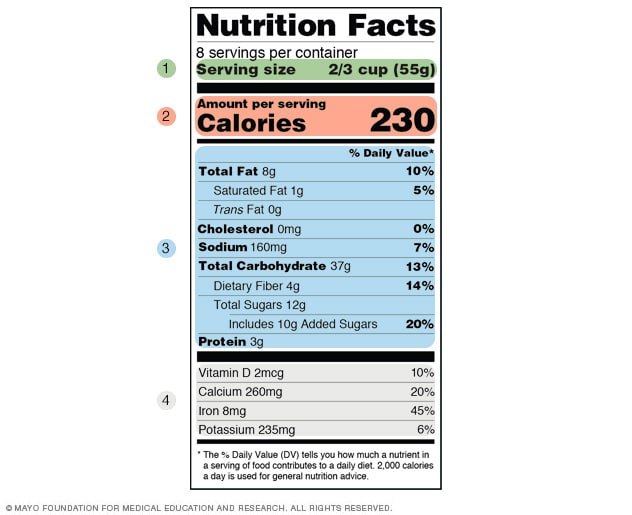
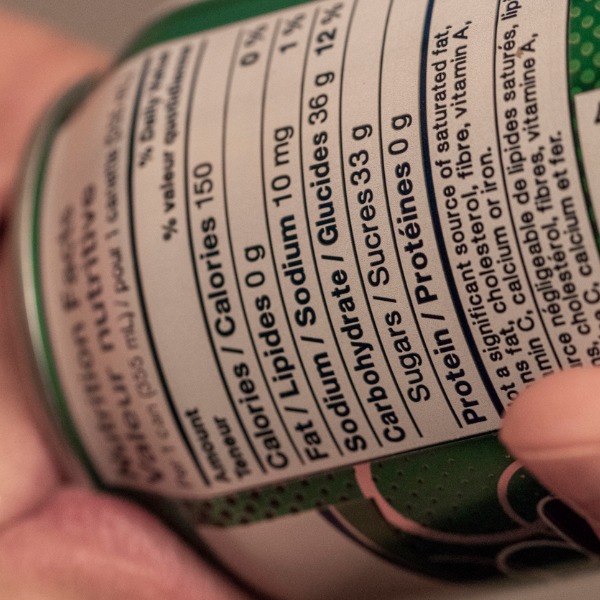

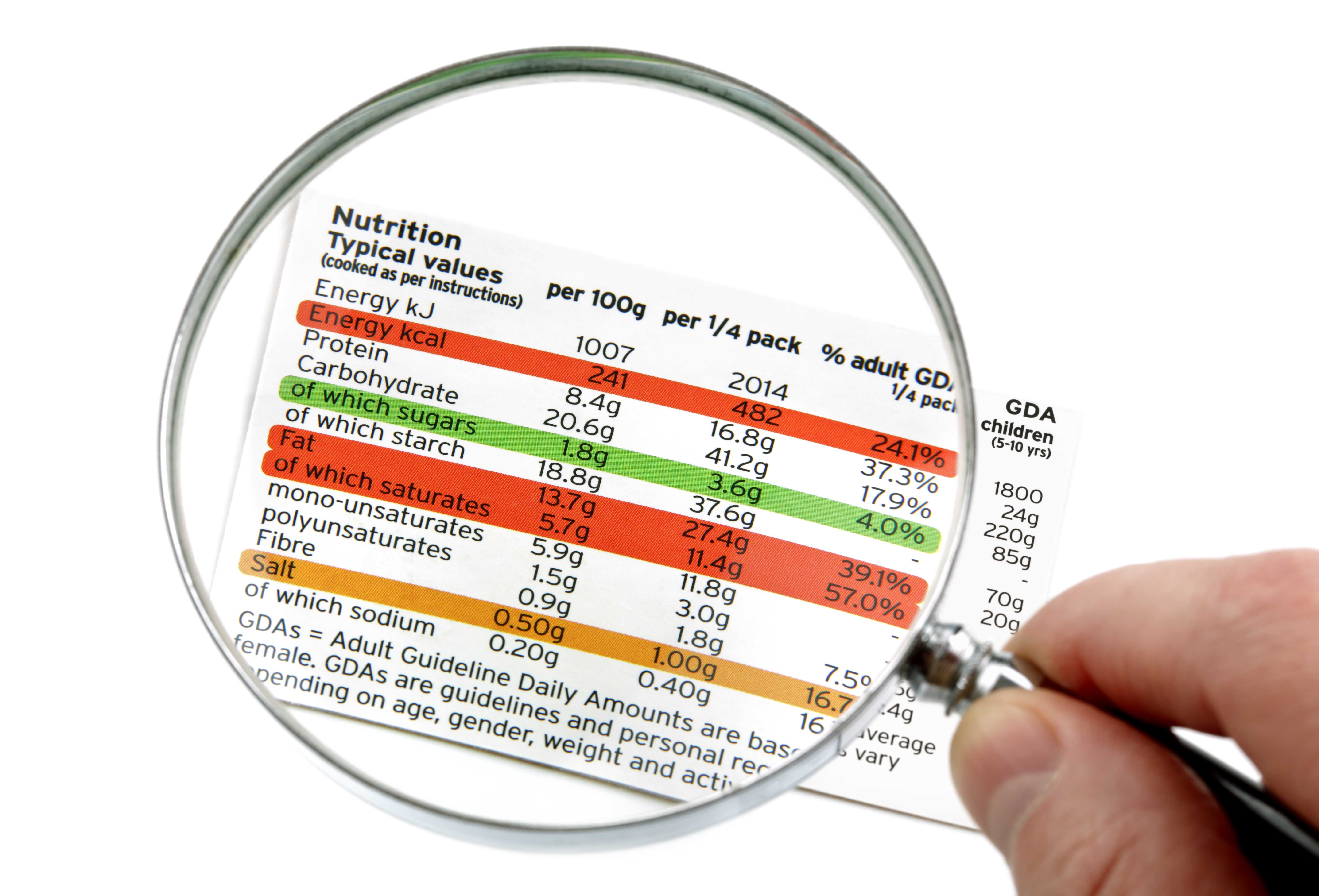
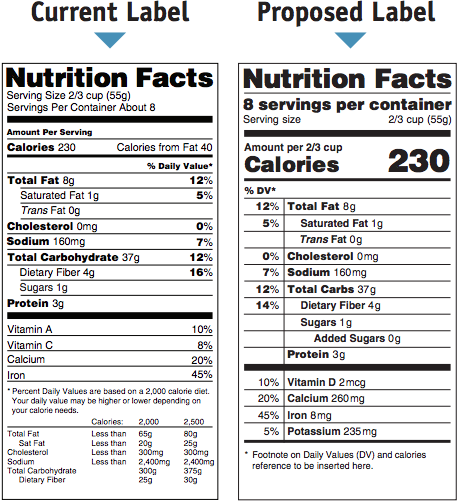
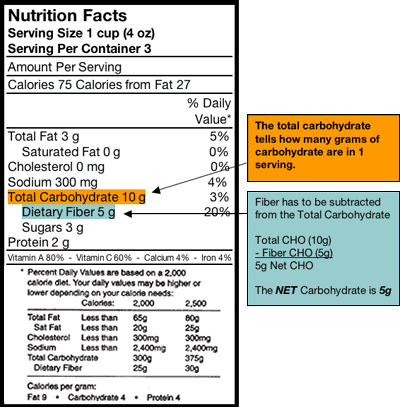
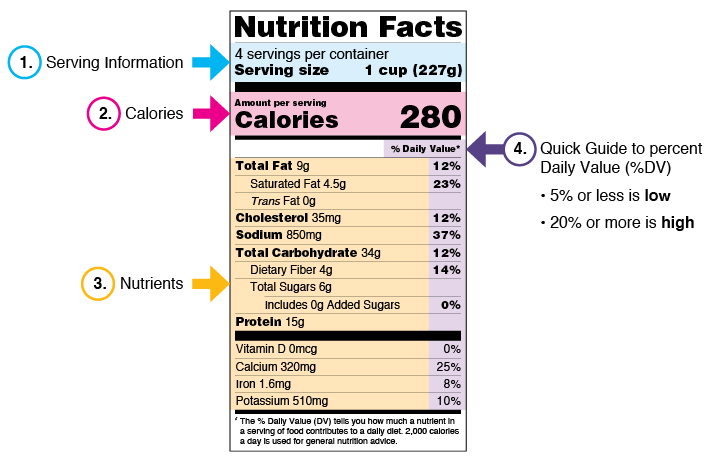

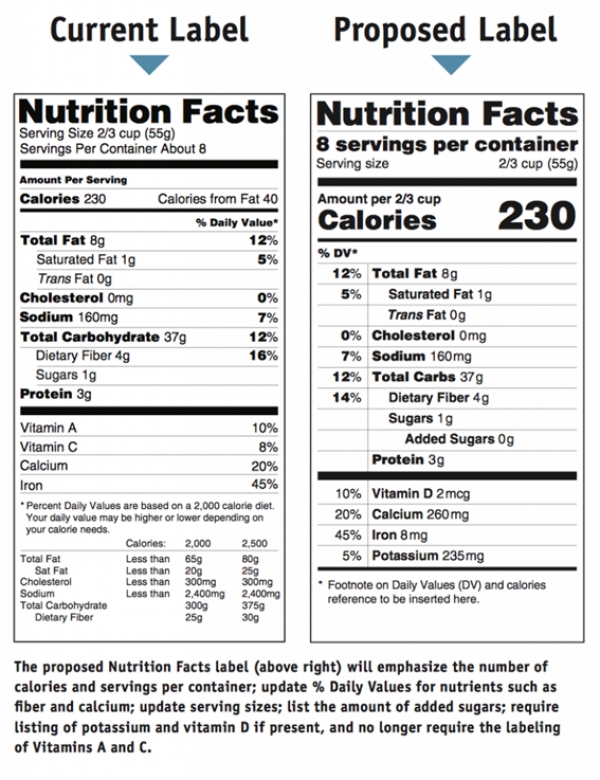
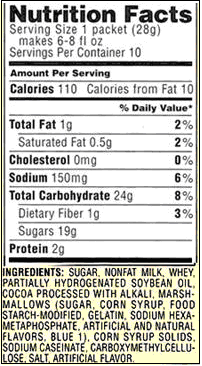


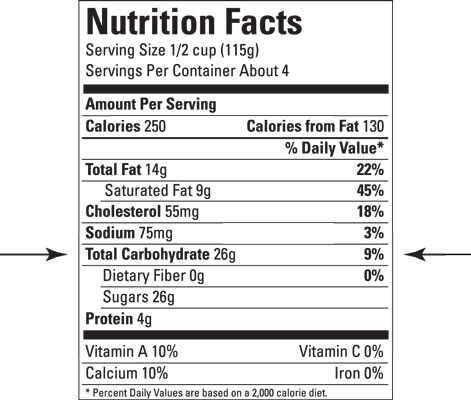
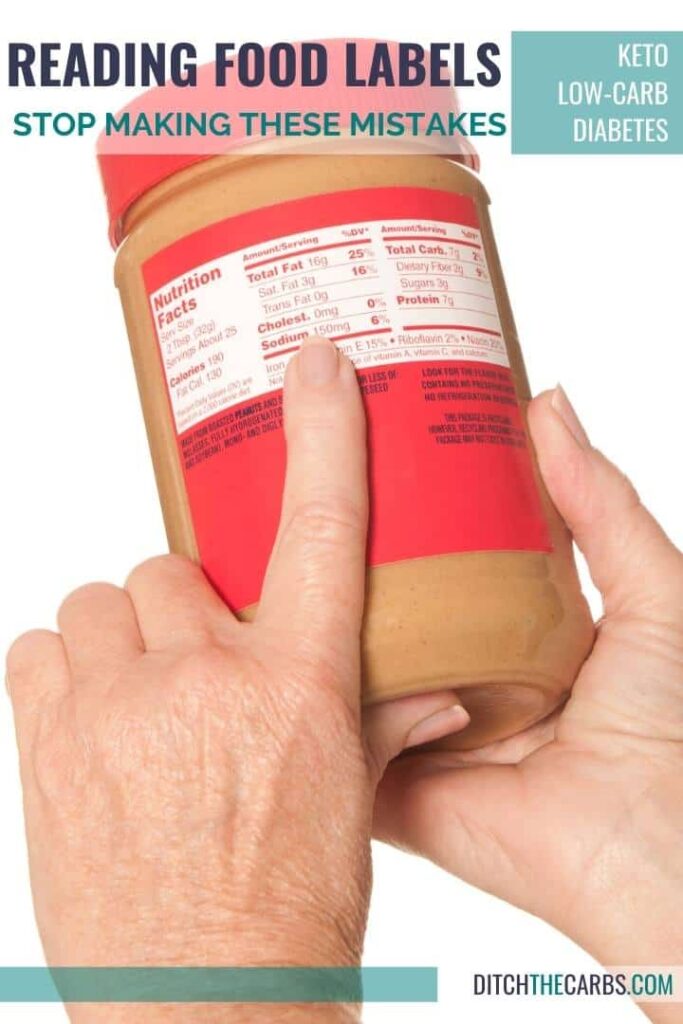

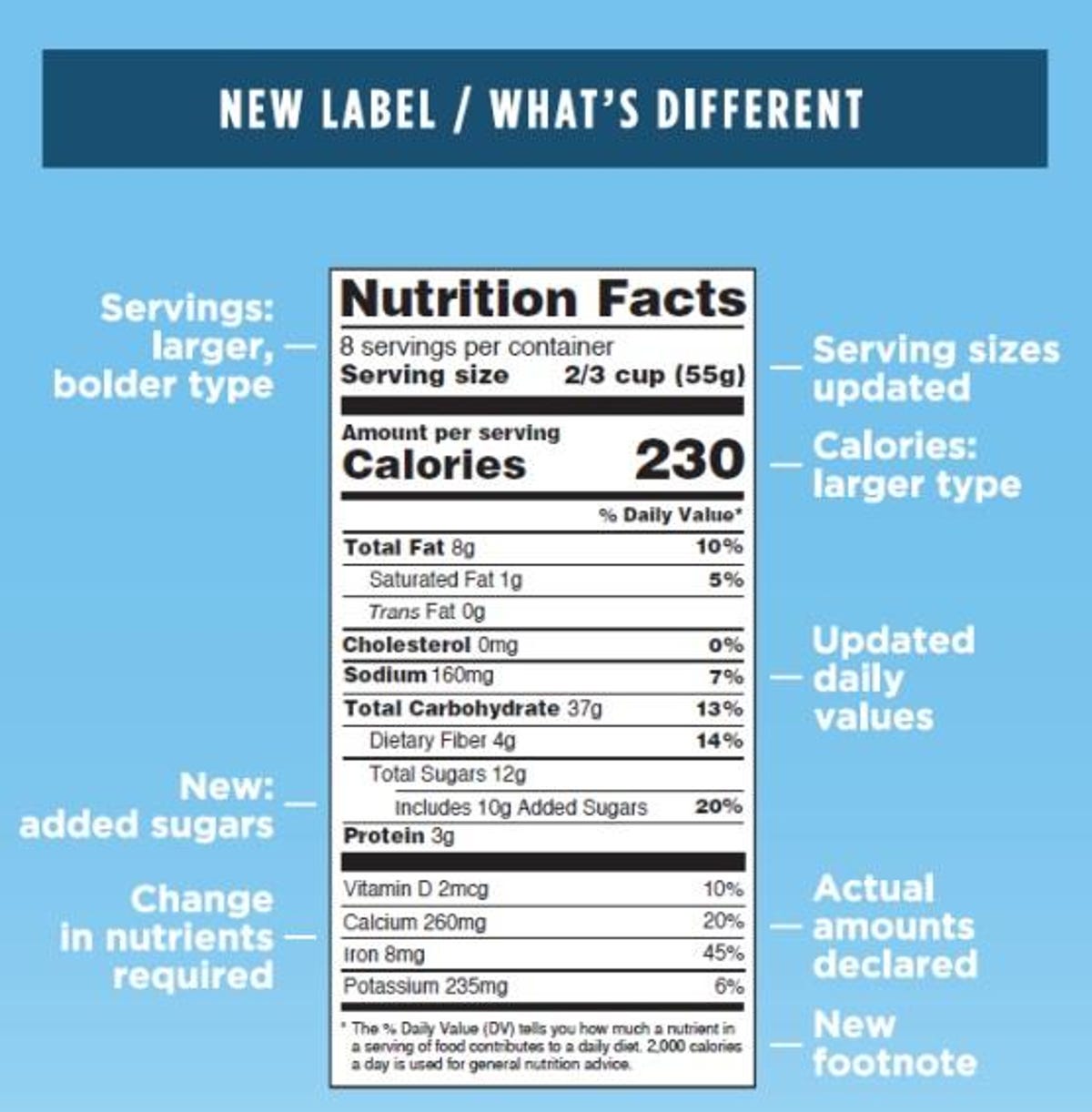


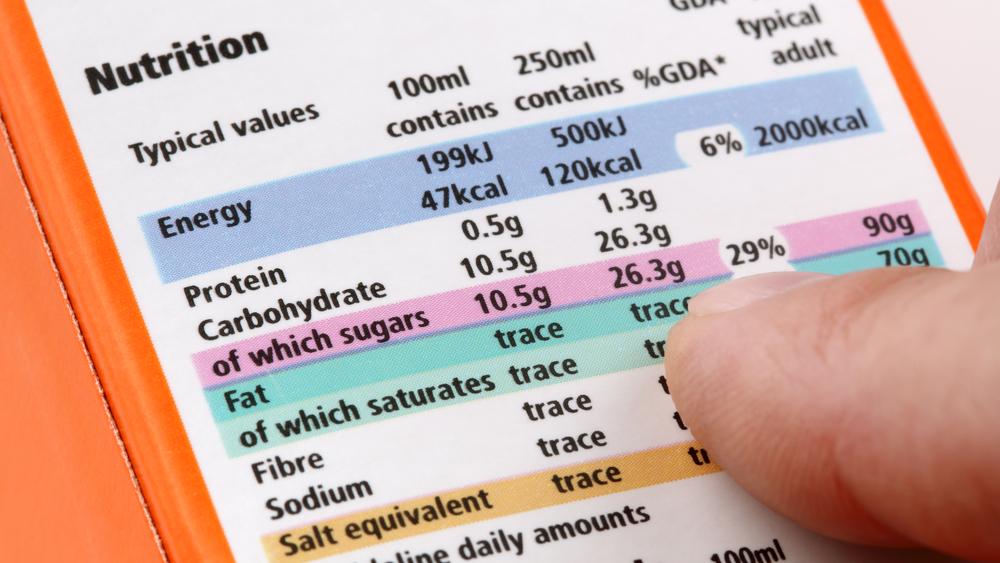



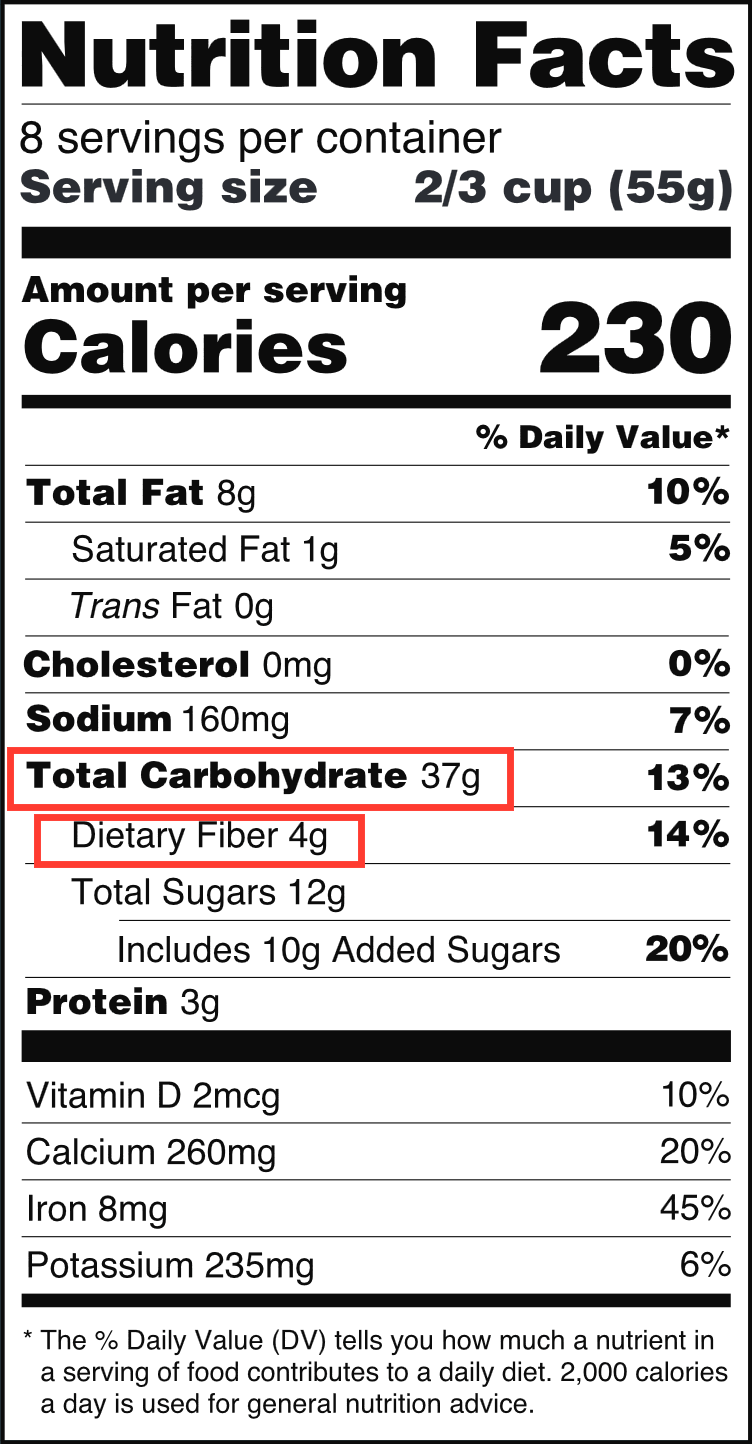
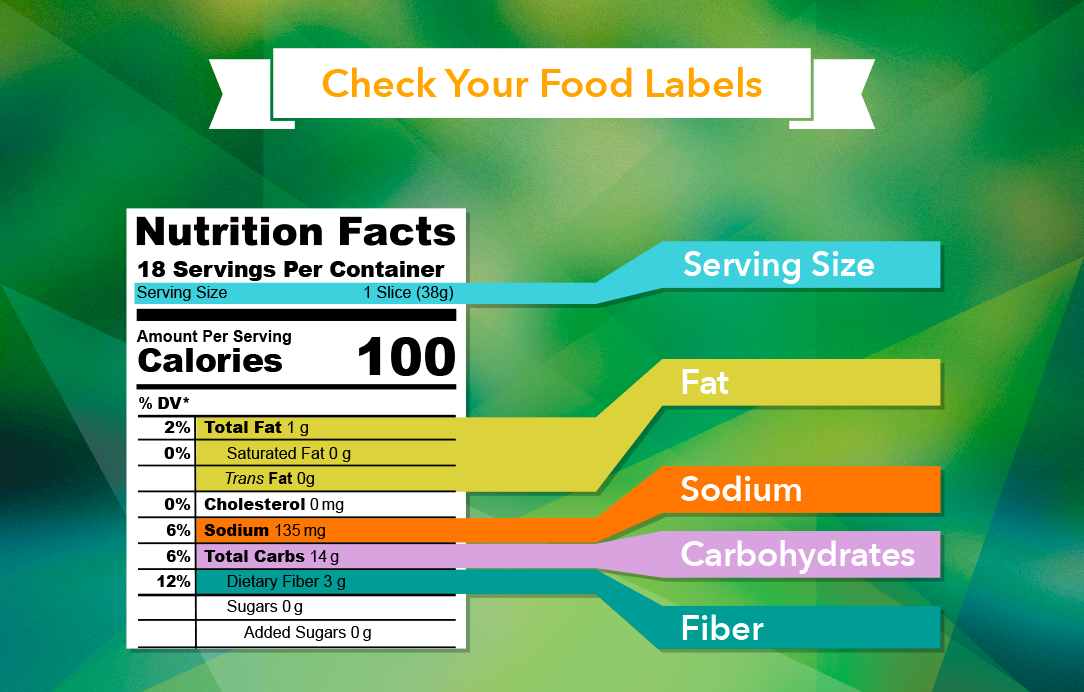
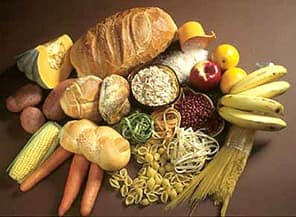




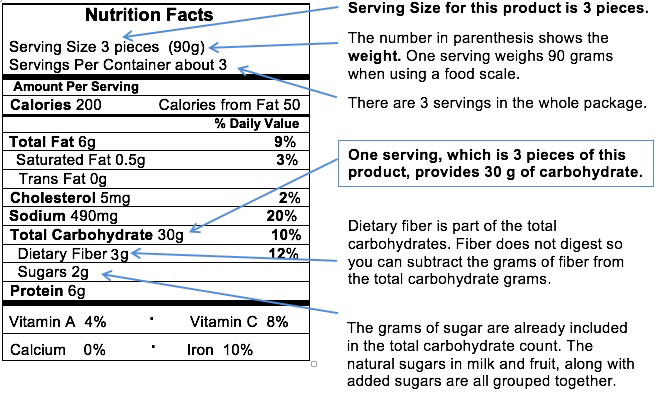
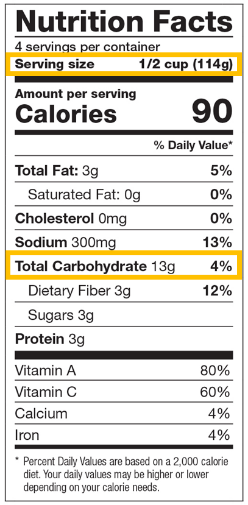

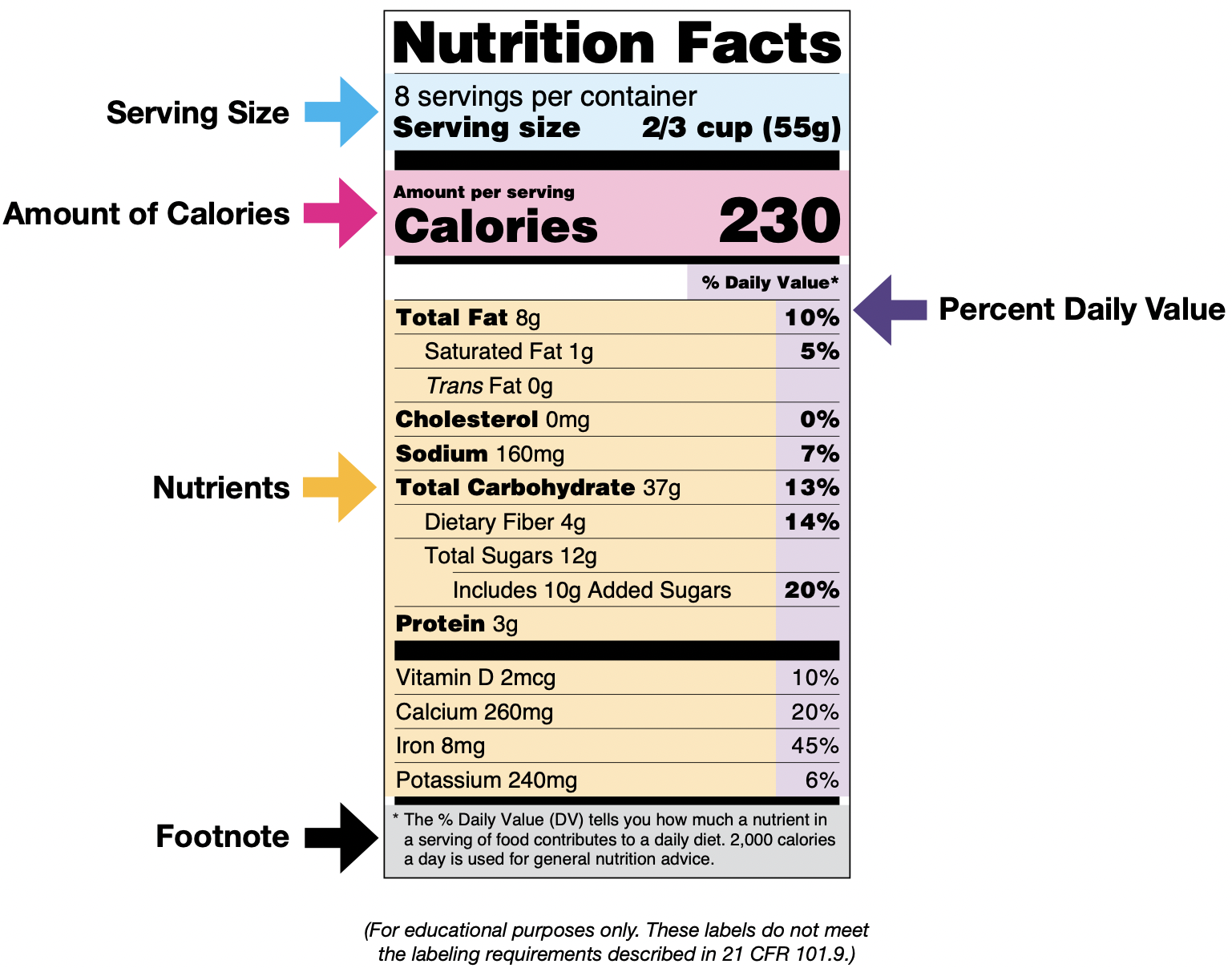
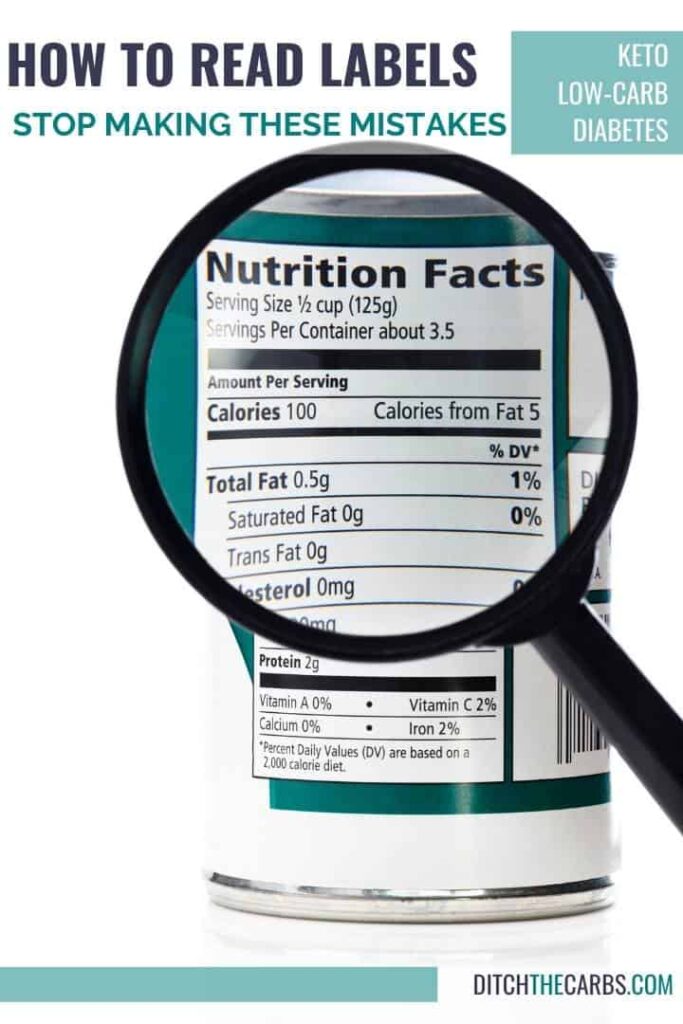


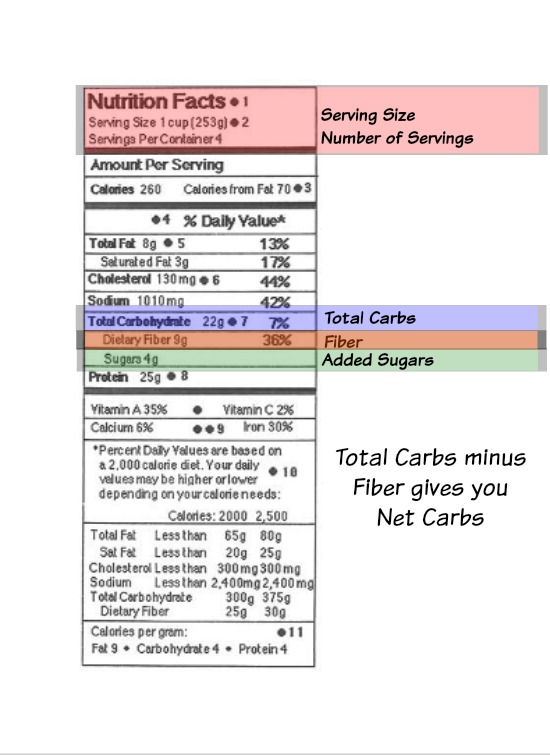
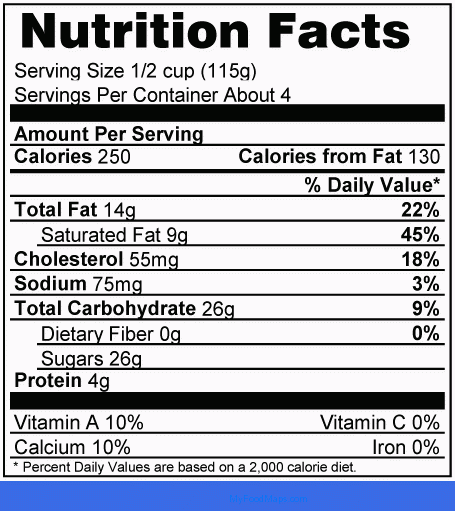
Post a Comment for "45 understanding carbs on food labels"